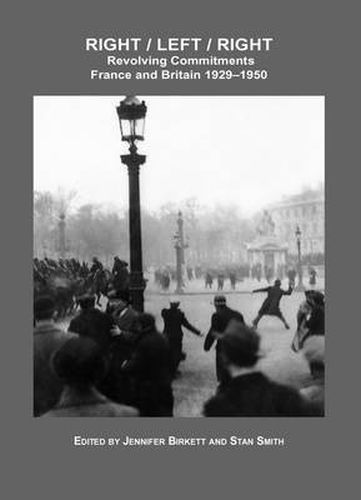Readings Newsletter
Become a Readings Member to make your shopping experience even easier.
Sign in or sign up for free!
You’re not far away from qualifying for FREE standard shipping within Australia
You’ve qualified for FREE standard shipping within Australia
The cart is loading…






By the late 1920s, the European mood had changed from postwar disenchantment, nihilism or apolitical hedonism to a more serious engagement with a politics of crisis, economic collapse and social and cultural disintegration. The emergence of fascist movements throughout Europe, the failure of the social democracies to respond adequately to their threat, and the consequent rise to influence of an authoritarian, Moscow-dominated Communism found the European intelligentsia in ferment in the early 1930s. The deeply ambiguous mood of the years preceding Hitler’s accession to power in 1933 led many writers to espouse authoritarian and radical allegiances of Left or Right, or to vacillate between extremes. In the mid 1930s, a shift in Comintern policy to class collaboration strategies against fascism appeared to be vindicated by the election of Popular Front governments in Spain and France. The Spanish Civil War and Hitler’s seizure of Austria and Czechoslovakia in 1938 put such strategies under strain, until they were destroyed by the Nazi-Soviet Pact and the partition of Poland in late 1939. The Second World War saw the final dissolution of the old Left consensus, bringing new disillusions, or the hardening of commitments to rigid dogmas, or renunciation of political commitment altogether. Extending from the origins of the European crisis in the late 1920s to its consequences in the aftermath of World War II, this collection of essays examines the complex and contradictory responses in British and French intellectual and cultural circles to that key political moment of the twentieth century, when, as Leon Trotsky put it in 1932, history was poised like a ball on top of a pyramid, and the slightest impact [could] cause it to roll down either to the left or to the right. It offers a review of the radical shifts and reversals of political allegiance over this period in France and Britain, seeks to explore some of the tensions and confusions in cultural and everyday life that produced them, and presents a comparative account of writers who have shaped subsequent understanding of these two momentous decades.
$9.00 standard shipping within Australia
FREE standard shipping within Australia for orders over $100.00
Express & International shipping calculated at checkout
By the late 1920s, the European mood had changed from postwar disenchantment, nihilism or apolitical hedonism to a more serious engagement with a politics of crisis, economic collapse and social and cultural disintegration. The emergence of fascist movements throughout Europe, the failure of the social democracies to respond adequately to their threat, and the consequent rise to influence of an authoritarian, Moscow-dominated Communism found the European intelligentsia in ferment in the early 1930s. The deeply ambiguous mood of the years preceding Hitler’s accession to power in 1933 led many writers to espouse authoritarian and radical allegiances of Left or Right, or to vacillate between extremes. In the mid 1930s, a shift in Comintern policy to class collaboration strategies against fascism appeared to be vindicated by the election of Popular Front governments in Spain and France. The Spanish Civil War and Hitler’s seizure of Austria and Czechoslovakia in 1938 put such strategies under strain, until they were destroyed by the Nazi-Soviet Pact and the partition of Poland in late 1939. The Second World War saw the final dissolution of the old Left consensus, bringing new disillusions, or the hardening of commitments to rigid dogmas, or renunciation of political commitment altogether. Extending from the origins of the European crisis in the late 1920s to its consequences in the aftermath of World War II, this collection of essays examines the complex and contradictory responses in British and French intellectual and cultural circles to that key political moment of the twentieth century, when, as Leon Trotsky put it in 1932, history was poised like a ball on top of a pyramid, and the slightest impact [could] cause it to roll down either to the left or to the right. It offers a review of the radical shifts and reversals of political allegiance over this period in France and Britain, seeks to explore some of the tensions and confusions in cultural and everyday life that produced them, and presents a comparative account of writers who have shaped subsequent understanding of these two momentous decades.